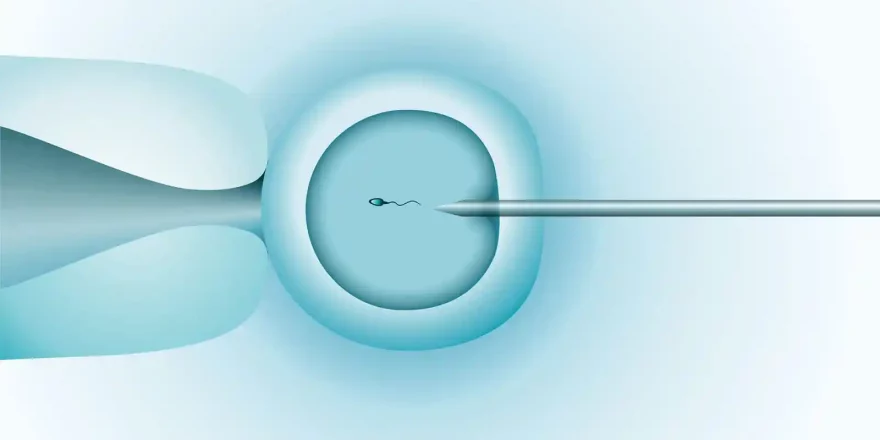Natural treatments for male infertility revolve around improving a man’s health to raise the quality of his semen and sperm. This simple approach to improving sexual health is practical and relies on the morefertile Personal Fertility Profiles (PFPs). Matching lifestyle changes, diet and herbs to each man’s personal needs lead to clear improvements in male fertility within a few months. The use of testing to highlight individual strengths and problems is crucial in choosing treatment options to resolve them.
Male fertility is less complicated than female fertility and revolves around sperm numbers reaching an egg because it takes about 40 sperm to break through the shell that surrounds an egg. The other issue is the sperm that fertilises the egg must carry DNA that will create a healthy pregnancy.
Oxidative stress and sperm health
Significant causes of male fertility are the damage to sperm as they form in the testes, which is often from toxins from the environment but can also be internally generated. In truth, any exposure to toxins damages sperm and reduces a man’s fertility, and most environmental toxins like smoking, alcohol, pesticides, chemicals, and drugs (Lifestyle) are avoidable. However, the internal issues are more complicated and revolve around “oxidative stress” which is an imbalance between “reactive oxygen species” (ROS) that damage cells, and the body’s ability to detoxify them with antioxidants or repair the damage they cause: i
- Reactive oxygen species include peroxides, ozone and nitric oxide
- Antioxidants can prevent, reduce or repair ROS damage and are essential to stop “free radical” chain reactions that kill cells
- All life forms have systems to protect them from “free radical” damage, and they rely on vitamins, enzymes and minerals
- Sperm are particularly vulnerable to ROS damage, and antioxidants are crucial for male fertility and can predict fertility better than standard semen tests! ii iii
60-75% of male infertility has traditionally been “cause unknown”, but high oxidative stress (and low antioxidant levels) were probably to blame, and cell types in semen samples indicate oxidative stress levels:
- Round cells (immature sperm) and leukocytes (white blood cells) produce free radicals, and many of these cells in samples indicate high oxidative stress levels iv
Reducing oxidative stress
Oxidative stress is the relative balance between ROS and antioxidants, and there are two approaches that should be adopted at the same time:
- Avoid the environmental and lifestyle factors that increase ROS
- Supplement with antioxidants because benefits extend beyond sperm health: v
-
- Erectile dysfunction is linked to higher free radical levels and lower antioxidant levels vi
- Total Antioxidant Status (TAS) is significantly lower in infertile men
- Antioxidant levels relate to sperm concentration, motility and morphology vii
Antioxidants for male fertility
A balanced approach to dietary supplements is fundamental because taking megadoses or supplementing for extended periods can harm health and fertility. Our recommendation is to focus on having a varied healthy diet and add quality “food-state” supplements as needed. To be scientific and safe when taking supplements, get a nutritional assessment of personal needs and supplement accordingly.
- Nutritional supplements can improve erectile dysfunction, and three months of supplementing with propionyl-L-carnitine, L-arginine and niacin (all antioxidants) significantly improved the erections of 40% of men with erectile dysfunction, and about 77% had partial improvements iix
- There isn’t a single “magic” substance that reduces oxidative stress, and it’s best to supplement with a range of antioxidants ix
- Low folate levels in semen samples are linked to higher sperm DNA fragmentation rates x
- High antioxidant intake (vitamin C, vitamin E, b-carotene, zinc, and folate) results in about 20% less sperm DNA damage than men with low antioxidant intakes
- Adding antioxidants to the diet improves the sperm quality of men over 45, and their DNA fragmentation rates reduce to levels usually found in young men xi
Recommended supplements (male and female)
- A quality “food-state” multi-vitamin & mineral formula
- Omega oils, and we recommend Krill oil which contains astaxanthin
- Vitamin D (it improves testosterone levels and cardiac health) xii
- Additional antioxidants, including vitamin C & E
Additional supplements for men
- Folic acid (as methylfolate)
- L Arginine
- L Carnitine
- Co-enzyme Q10
- Astaxanthin
Specific Conditions
There are different treatment options for the various male fertility challenges, including herbal supplements that raise testosterone, libido, erectile function and sperm health.
ii’Total antioxidant status: a biochemical predictor of human male fertility’ A. L. Adeel et al. Andrologia Volume 44, Issue Supplements1, pages 20–25, May 2012.
iii’DNA integrity and semen quality in men with low seminal antioxidant levels’ M.B. Shamsi, et al. Mutation Research/Fundamental and Molecular Mechanisms of Mutagenesis, Volume 665, Issues 1–2, 1 June 2009, Pages 29–36
iv’Pro-oxidative and anti-oxidative imbalance in human semen and its relation with male fertility’. N. Garrido et al. 2004. Asian J. Androl., 6:59-65
v’Supplements to Enhance Male Fertility’ Peter N. Schlegel, et al. Biennial Review of Infertility 2013, pp 3-7
vi’Evaluation of serum oxidative and antioxidative status in patients with erectile dysfunction’ M. Aldemir et al. Andrologia Volume 44, Issue Supplement s1, pages 266–271, May 2012
vii’Total antioxidant status: a biochemical predictor of human male fertility’ A. L. Adeel et al. Andrologia Volume 44, Issue Supplement s1, pages 20–25, May 2012.
viii’Propionyl-L-carnitine, L-arginine and niacin in sexual medicine: a nutraceutical approach to erectile dysfunction’. D. Gianfrilli et al. Andrologia Volume 44, Issue Supplement s1, pages 600–604, May 2012.
ix’Oxidative stress and medical antioxidant treatment in male infertility.’ F. M. Lanzafame et al. Reproductive BioMedicine Online Volume 19, Issue 5 , Pages 638-659, November 2009
x’Low folate in seminal plasma is associated with increased sperm DNA damage’. Jolanda C. Boxmeer, et al. Fertility and Sterility Volume 92, Issue 2, August 2009, Pages 548–556
xi’Micronutrients intake is associated with improved sperm DNA quality in older men’. Thomas E. Schmid, et al. Fertility and Sterility Volume 98, Issue 5, November 2012, Pages 1130–1137.
xii “Associations of vitamin D status and vitamin D-related polymorphisms with sex hormones in older men’. R. Rafiq et al. The Journal of Steroid Biochemistry and Molecular Biology. Nov 2016.
Photo by Kelly Sikkema on Unsplash



